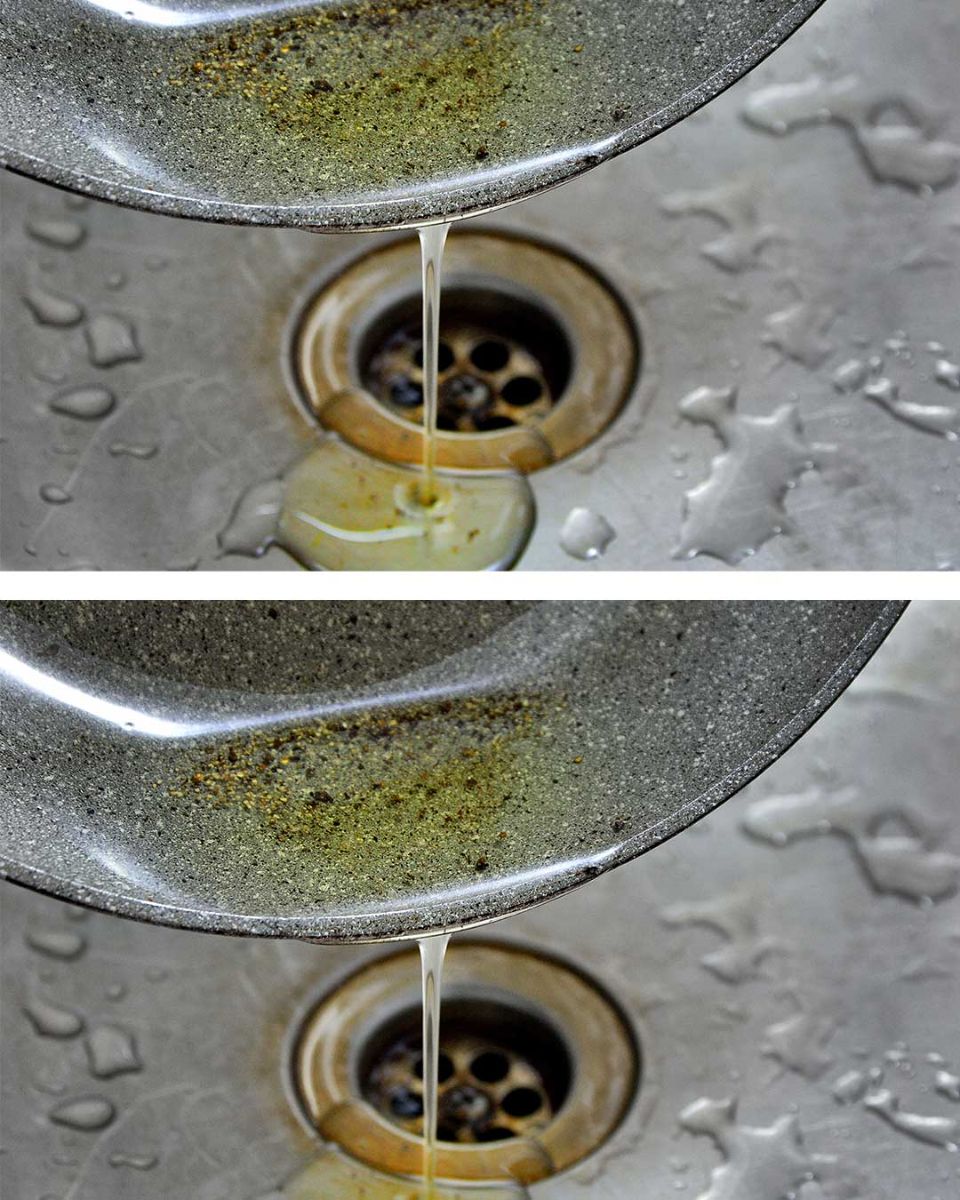Oil disposal is a significant topic for anyone who spends time in the kitchen. The way we dispose of cooking oils can have profound environmental consequences, as well as implications for the plumbing systems in our homes. Improper disposal of cooking oil can lead to clogged pipes and sewer system problems, which can be costly to repair. Environmentally, the accumulation of fats, oils, and greases (commonly referred to as FOGs) can wreak havoc on wastewater treatment facilities and local wildlife.
If you’re unsure about the correct disposal methods for cooking oil, this article aims to clarify why pouring oil down the kitchen sink is not a recommended practice. By the end of this piece, you’ll be equipped with the knowledge to manage kitchen waste responsibly and sustainably. Such insight not only preserves your home’s plumbing system but also contributes to environmental preservation.
Reasons Not to Pour Oil Down the Kitchen Sink
1. Clogged Pipes
Cooking oil, when poured down the sink, can cling to the insides of pipes. Over time, this can create substantial blockages, leading to poor drainage and potential plumbing issues.
2. Fatbergs
In sewer systems, oil can combine with other waste products to form “fatbergs” – large, solid masses made up of fats, oils, grease, and non-biodegradable waste materials. These can cause extensive and costly damage to municipal sewer systems.
3. Environmental Impact
Improper oil disposal can also have a detrimental effect on the environment. Sewage systems that overflow due to blockages can leak contaminants into local waterways, harming aquatic life and polluting drinking water supplies.
4. Wildlife Harm
When oil makes its way into natural water bodies, it can coat the feathers or fur of wildlife, affecting their insulation and buoyancy. This can have fatal consequences for animals exposed to polluted water.
5. Costly Repairs
Next Page

